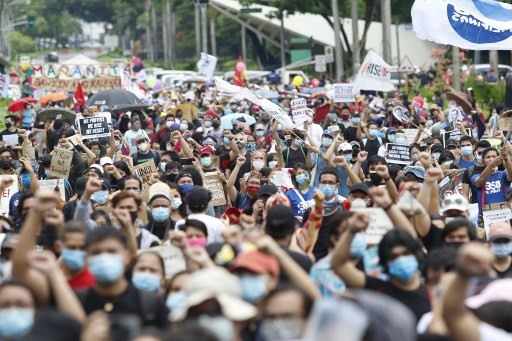
By Ismail Mohamed Ali
KUALA LUMPUR, Malaysia: You know something has gone terribly wrong when a once-premier think tank is headed by a keropok (deep fried cracker) seller. The Malaysian Institute of Economic Research (MIER), once the go-to institution for economic insights, is teetering on the brink. Sources close to the Prime Minister whisper that he’s trying to distance himself from MIER, an institute that has failed to live up to its former glory. Those on MIER's Board, once friendly with the PM, are now seen as opportunists by him.
In a twist that would be laughable if it weren’t so tragic, MIER now operates with just two research staff and seven support staff. It boasts a bizarre distinction: a 2:6 ratio of researchers to Board members—a world first for any think tank. And who’s running the show? A little-known economist, Dr. Anthony Das, whose name hardly echoes in academic halls or policy circles. A retired director from the Economic Planning Unit (EPU) noted that Dr. Das was merely a part of the secretariat, taking notes and making calls, certainly not the advisor he claims to be. The civil servant was quick to add, “He got the CEO job because of his closeness to the Bersatu elites—Muhyiddin, Tok Pah, and Azmin Ali.”
He quipped, “That is how he got the CEO job at MIER. MIER’s Board has some people who used to hang on to the Bersatu strong men.”
A professor from USM weighed in, astonished at how someone with no research credentials, no academic publications, no books, no book chapters, in other words — no scholarly footprint could helm a national think tank. Meanwhile, a bank economist pointed out that the current CEO even has a sausage business on the side. “Can someone running a factory also run MIER? Well, you can if you’re part of the right political circle,” the economist quipped.
In just four years, MIER has cycled through four CEOs, none lasting long enough to leave a mark. One prominent intellectual lamented, “This man is no economic thinker, not even a notable economist — how did he get the top job?” The real issue, critics say, lies with the Board of Trustees, who seem to have handed the reins to an unqualified, unknown figure, tarnishing MIER's legacy.
Something is terribly amiss if the Board of Trustees is putting an “unheard, incompetent man with no credentials as a scholar for the top job,” he emphasized.
Adding insult to injury, MIER’s Board is largely composed of individuals nearing 80, seemingly out of touch with the institute's mission. Sources from within the establishment suggest that there’s a growing effort to distance MIER from its status as a national think tank, fearing it’s doing more harm than good to Malaysia's image.
And in the midst of this downfall, both the Ministry of Economics and Ministry of Finance have no representation on MIER's Board, completely in the dark about the mess unraveling at the once-revered institution. As for whether the Prime Minister’s office is considering removing “Malaysian” from MIER’s name? The silence from the Companies Commission of Malaysia speaks volumes.







0 Comments
LEAVE A REPLY
Your email address will not be published